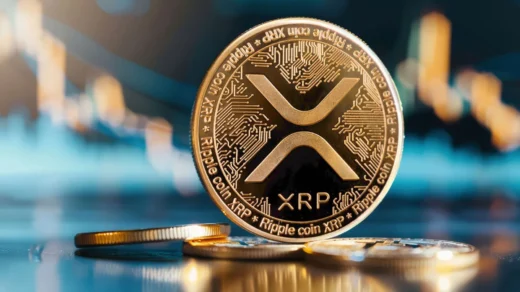What are Bitcoin ETF you may ask ? Bitcoin, the pioneer of cryptocurrencies, has transformed from a niche digital currency to a global financial phenomenon. With its meteoric rise over the past decade, Bitcoin has catalyzed the creation of an entirely new asset class now valued at over $1 trillion. The recent approval of 11 spot Bitcoin ETFs in January 2024 marks a significant milestone, offering traditional investors an unprecedented opportunity to easily invest in Bitcoin.
Understanding Spot Bitcoin ETFs
On January 10, 2024, the Securities and Exchange Commission (SEC) greenlit 11 spot Bitcoin ETFs, revolutionizing cryptocurrency investment. But what exactly is a spot Bitcoin ETF?
An Exchange-Traded Fund (ETF) is a type of security that tracks the performance of a group of assets or commodities. A spot Bitcoin ETF specifically tracks the current (spot) price of Bitcoin. By holding an equivalent amount of Bitcoin to back every share sold, these funds are directly backed by the cryptocurrency itself.
This development is particularly significant for investors who want exposure to Bitcoin without the complexities of buying Bitcoin directly, such as managing exchange accounts, digital wallets, and private keys. Spot Bitcoin ETFs offer a straightforward way to add Bitcoin to your investment portfolio through traditional brokerage accounts.
How Spot Bitcoin ETFs Operate
The mechanics of spot Bitcoin ETFs are relatively straightforward:
- ETF providers purchase and securely store Bitcoin in digital wallets managed by custodians.
- Shares representing the stored Bitcoin are issued and can be traded on stock exchanges.
- Share prices reflect the current spot price of Bitcoin.
- Authorized Participants (APs) create or redeem large blocks of shares to maintain price alignment with Bitcoin’s value.
This structure allows investors to gain exposure to Bitcoin’s price movements without directly owning the cryptocurrency. It’s particularly beneficial for those looking to include Bitcoin in retirement accounts or for investors who prefer the familiarity and regulatory oversight of traditional financial products.
The 11 Approved Spot Bitcoin ETFs
As of January 31, 2024, the following spot Bitcoin ETFs have been approved by the SEC:
| ETF Name | Ticker | Expense Ratio | Fee Waiver |
|---|---|---|---|
| ARK 21Shares Bitcoin ETF | ARKB | 0.21% | 0% for 6 months or until $1B in assets |
| Bitwise Bitcoin ETF | BITB | 0.20% | 0% for 6 months or until $1B in assets |
| Fidelity Wise Origin Bitcoin Trust | FBTC | 0.25% | Waived until July 31, 2024 |
| Franklin Bitcoin ETF | EZBC | 0.19% | 0% until August 2, 2024 or $10B in assets |
| Grayscale Bitcoin Trust | GBTC | 1.50% | No waiver |
| Hashdex Bitcoin ETF | DEFI* | 0.90% | No waiver |
| Invesco Galaxy Bitcoin ETF | BTCO | 0.25% | 0% for 6 months or until $5B in assets |
| iShares Bitcoin Trust | IBIT | 0.25% | 0.12% for 12 months or until $5B in assets |
| Valkyrie Bitcoin Fund | BRRR | 0.25% | 0% for 3 months |
| VanEck Bitcoin Trust | HODL | 0.25% | No waiver |
| WisdomTree Bitcoin Fund | BTCW | 0.25% | 0% for 6 months or until $1B in assets |
*Note: The Hashdex Bitcoin Futures ETF (DEFI) will convert to a spot Bitcoin ETF at a later date.
Impact on Bitcoin’s Price and Future Outlook
The introduction of spot Bitcoin ETFs is expected to have both short-term and long-term effects on Bitcoin’s price and adoption:
- Short-term impact: Increased accessibility may lead to higher demand for Bitcoin as ETFs purchase from exchanges to meet investor interest.
- Long-term outlook: Potential for increased adoption as retirement plans, 401(k)s, and financial advisors incorporate spot Bitcoin ETFs into diversified portfolios.
- Price volatility: While ETFs may increase liquidity and potentially stabilize prices over time, Bitcoin remains a volatile asset.
Marko Zlatic, founder of Whiteboard Finance, believes that “it will positively impact Bitcoin’s price because of increased adoption, easier access to ‘normies’ and increased liquidity in the marketplace.”
Pros and Cons of Spot Bitcoin ETFs
Advantages
- Enhanced legitimacy for Bitcoin as an asset class
- Increased liquidity in the Bitcoin market
- Potential for long-term price appreciation
- Lower trading fees compared to some crypto exchanges
Disadvantages
- Increased regulatory scrutiny
- Investors don’t have direct custody of Bitcoin
- Annual fees associated with ETF management
- Exposure to Bitcoin’s inherent price volatility
Alternatives to Spot Bitcoin ETFs
While spot Bitcoin ETFs offer a new avenue for Bitcoin investment, they’re not the only option. Consider these alternatives:
- Direct Bitcoin purchase: Buy and hold Bitcoin through a cryptocurrency exchange.
- Bitcoin futures ETFs: Invest in ETFs that trade Bitcoin futures contracts.
- Bitcoin mining stocks: Invest in publicly traded companies involved in Bitcoin mining operations.
For those interested in exploring other cryptocurrencies, consider learning how to buy Ethereum, Solana, or XRP.
Conclusion
The approval of spot Bitcoin ETFs marks a significant milestone in the cryptocurrency’s journey towards mainstream adoption. While they offer a more accessible way to invest in Bitcoin, it’s crucial to understand the risks and consider your investment goals before diving in. As with any investment, thorough research and possibly consulting with a financial advisor is recommended.
Whether you choose to invest through a spot Bitcoin ETF or explore other options, the cryptocurrency market continues to evolve, offering diverse opportunities for investors willing to navigate its unique landscape.











